This is part of an ongoing series where I briefly interview a theologian, pastor, author, or Bible scholar that I highly respect, and ask them to tell us a bit about themselves, their most current teaching project, and the one most important truth (the hack) they wish every Christian could learn.
I call the series “Hack the Theologian.” This doesn’t mean I think these theologians are hacks. Far from it! It means that I am trying to find (and share with you) the one thing that makes them tick, the one insight that keeps them writing and teaching, the one truth they are most passionate about, the one idea that turned their life and theology upside down. You can read the other posts in the series right here.
(Do you know an author I can highlight in this series? Have them contact me!)
So Let’s “Hack” Frank Viola
 Frank Viola is the author of numerous books and heads up an online discipleship group called “The Deeper Christian Life.” Here are Frank Viola’s answers to my questions:
Frank Viola is the author of numerous books and heads up an online discipleship group called “The Deeper Christian Life.” Here are Frank Viola’s answers to my questions:
1. Can you tell us who you are and what you do in 40 words or less?
Just an Italian guy who is captivated by Jesus and shares the same name as the MLB pitcher. Ever since I’ve been a Christian, I’ve known in my heart that there must be more. So my spiritual journey has been that of discovering the “more” and sharing my discoveries with others.
2. Tell us something about yourself that few people know.
I used to pitch in high school, and I was also the lead singer of an incredible music band. (Sadly, I never made the Majors — without counting in my dreams. The other Frankie V. did.)
3. What is the best book you have read this past year? (It doesn’t have to be theological!)
Shaped by Vision – the biography of T. Austin-Sparks (second time around).
4. You have a new book called There Must be More. Tell us a bit about it. What is the main point and what do you want people to learn or do?
We are calling this monstrosity my Titan. It’s an oversized, 800-page, limited edition hardcover that contains over 380,000 words. It includes all of my published writings from 2008 – 2016, some of which were rejected by my publishers because they were too controversial. I (and others) regard the Titan to be more radical than Pagan Christianity, my 2008 book with George Barna. It’s also a robust follow-up to Pagan Christianity.
Here is what it covers and who it’s for:
Serious Reasons
- It’s for those who have read some (or all) of my other works and want some of my best writings that have never been printed, which go deeper into the themes.
- It’s for those who are part of a Christian community or plan to be in one. It includes my memoir about church and body life with dozens of lessons learned. It also addresses the dangers and the common problems, along with how to deal with them based on my experience in body life since 1988. It’s more detailed in this regard than any of my other works.
- It presents a fresh look at God’s eternal purpose and driving passion through the sections on “Magnificent Obsession” and “Rethinking the Mission.”
- It’s for any Christian who knows in their hearts, “There has to be more than this” (meaning, more than what they’ve been taught and what they’ve seen).
- It’s for those who are interested in a totally different take on the baptism of the Spirit and spiritual gifts than the Pentecostal view and the cessationist view.
- It’s for those who wish to have in print my critique of John MacArthur’s Strange Fire.
- It’s for those who desire to get a fresh perspective on Christ and His kingdom that will warm the heart, edify the spirit, and inspire the soul.
- It’s for those who want all of my unpublished writings in one place. The Table of Contents gives readers an easy way to navigate the content.
- It’s for those who wish to contribute toward helping some of the poor and sick people we are trying to help.
Humorous Reasons
- It’s for those who are looking for an excuse to buy a new coffee table (there’s a good chance that the Titan will break it immediately upon placement).
- It’s for those seeking a blunt force object for a time of need (who needs guns when you have a copy of the Titan on hand).
- It’s for those who are looking for a heavy, unmovable door stopper.
- It’s for those who own fireplaces and are looking for good kindling material that will burn for at least 8 hours (the 800 pages are constructed in such a way that they roast slowly).
- It’s for both my fans who desire to collect all my work. (My mother being one of them.)
5. Karl Barth was once asked to summarize his life’s work in one sentence. He answered, “Jesus loves me, this I know, for the Bible tells me so.” How would you summarize your life’s work? To put this question another way, if you could get people to understand just one idea, what would it be?
Jesus Christ is ALL, everything else is commentary.
The Titan will only be printed once and never again. It’s presently on discount until August 20th. Check it out and get your copy at ViolaTitan.com


 This time of year I see article after article from Christians about why it is sinful to decorate Christmas trees, wrap presents, and sing “Deck the Halls.”
This time of year I see article after article from Christians about why it is sinful to decorate Christmas trees, wrap presents, and sing “Deck the Halls.”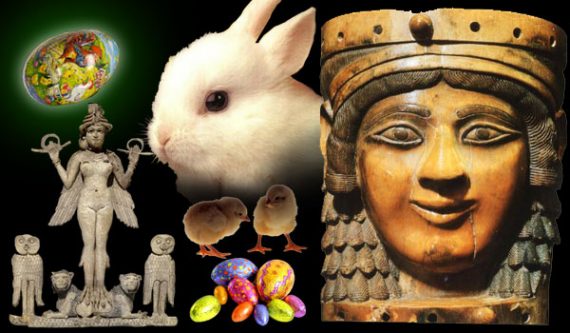



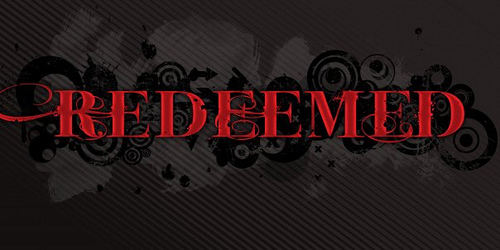


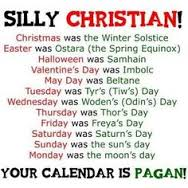 Now that I live in the Pacific Northwest, I have come to know many people who consider themselves “Pagan.” They are not atheist, godless people, but are quite devout, religious people. As I have had various conversations with them, I have come to respect many things about them and their religion, and believe that there is much that Christians can learn from Pagans. (If the truth be told, Christians have already borrowed a huge chunk of Pagan beliefs and practices. Most deny that this is so, but denying the truth doesn’t make the truth disappear. But this is a topic for another post.)
Now that I live in the Pacific Northwest, I have come to know many people who consider themselves “Pagan.” They are not atheist, godless people, but are quite devout, religious people. As I have had various conversations with them, I have come to respect many things about them and their religion, and believe that there is much that Christians can learn from Pagans. (If the truth be told, Christians have already borrowed a huge chunk of Pagan beliefs and practices. Most deny that this is so, but denying the truth doesn’t make the truth disappear. But this is a topic for another post.)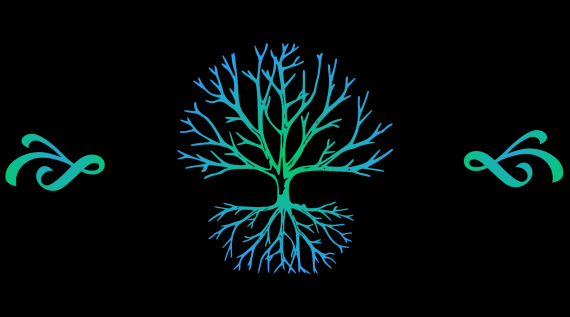
 I think many in Christianity would greatly benefit from a move into the woods. Not so that we can destroy the peace of nature by singing our songs and listening to sermons there (God forbid!), but so that we can listen to the songs already being sung, and see the sermons already being preached. Yes, see. I never go into nature without seeing sermons everywhere I look.
I think many in Christianity would greatly benefit from a move into the woods. Not so that we can destroy the peace of nature by singing our songs and listening to sermons there (God forbid!), but so that we can listen to the songs already being sung, and see the sermons already being preached. Yes, see. I never go into nature without seeing sermons everywhere I look.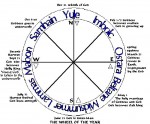
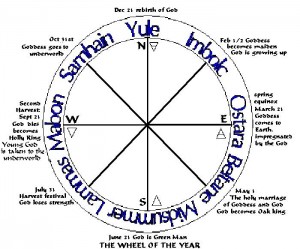 I attended a seminar recently on the topic of Paganism. You know… those people who worship Thor, Freya, Odin, and engage in mystical rites out in the woods, usually around a fire. No, they don’t worship Satan. No, they don’t practice black magic.
I attended a seminar recently on the topic of Paganism. You know… those people who worship Thor, Freya, Odin, and engage in mystical rites out in the woods, usually around a fire. No, they don’t worship Satan. No, they don’t practice black magic. I am butchering what C. S. Lewis said. Here is his exact quote:
I am butchering what C. S. Lewis said. Here is his exact quote: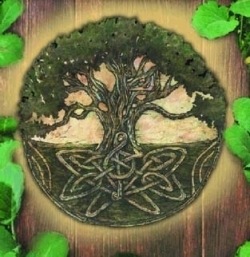 I think that the reason there are so many similarities between Christianity and other religions is not because Christianity borrowed or stole from these other religions (though some of that might have happened too), but because the Spirit of God was at work in the hearts and minds of the people who developed these religions to write eternity into their hearts, to foreshadow the Gospel of Jesus Christ, and to give men and women a longing for grace that could not be achieved in any other way than through Jesus.
I think that the reason there are so many similarities between Christianity and other religions is not because Christianity borrowed or stole from these other religions (though some of that might have happened too), but because the Spirit of God was at work in the hearts and minds of the people who developed these religions to write eternity into their hearts, to foreshadow the Gospel of Jesus Christ, and to give men and women a longing for grace that could not be achieved in any other way than through Jesus.
 So someone left a one-star review of
So someone left a one-star review of  This does not mean that Genesis 1-2 is myth, or that God didn’t really say the things He said in Deuteronomy, or that the Jewish feasts have no significance or meaning.
This does not mean that Genesis 1-2 is myth, or that God didn’t really say the things He said in Deuteronomy, or that the Jewish feasts have no significance or meaning.
